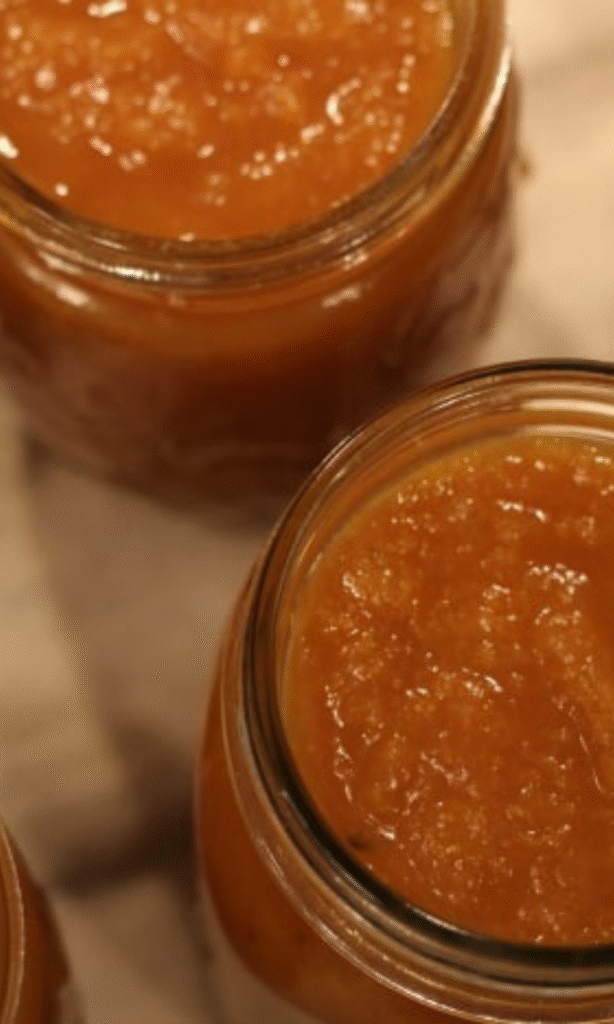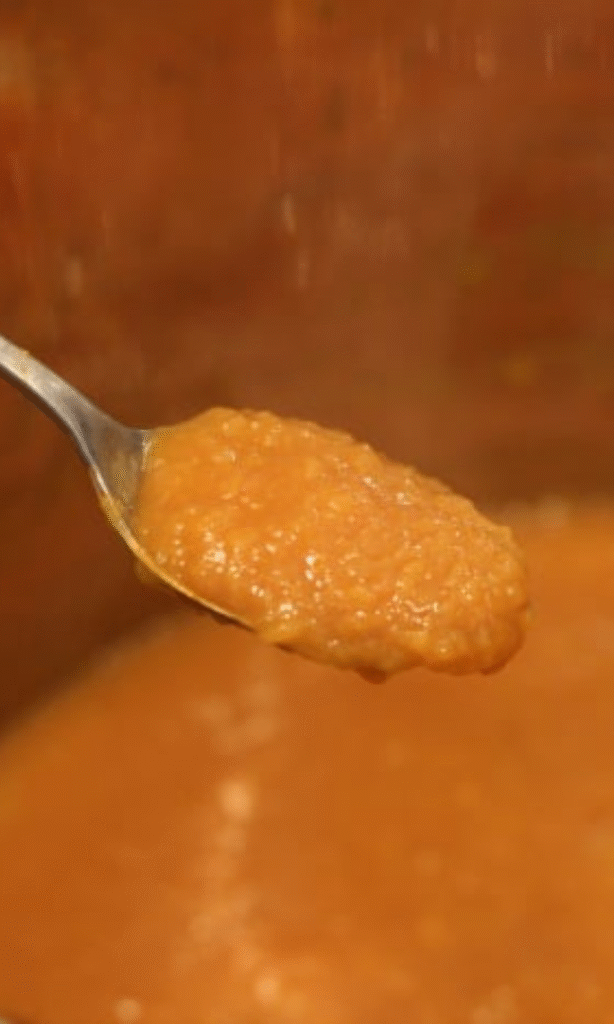There’s something about peaches that just screams summer. The smell, the juice running down your arm, that golden-orange glow when the sun hits them just right. But here’s the thing — summer doesn’t last forever. And neither do those bushels of peaches you scored from the farmers market or your backyard tree.
So what do you do when you’ve got more peaches than you can eat before they go soft and sad? You make peach butter. Not jam. Not pie. Peach butter — thick, smooth, sweet-tart, and perfect slathered on warm toast or stirred into oatmeal.
It’s not fancy. It’s not complicated. But it *is* sticky. Like, really sticky. Be warned: you might end up with peach-splattered cabinets, a splatter pattern on your apron, and maybe even a little smear on your nose. Totally normal. Totally worth it.
What Even Is Peach Butter?
Okay, quick pause — what’s the difference between peach butter and peach jam? Great question.
Jam has pectin, usually needs a ton of sugar, and sets up firm. Peach butter? No pectin needed. It’s just pureed peaches, slowly cooked down until thick and rich. It’s more about concentration than gelling. The result is silkier, deeper in flavor, and somehow feels more “peachy” than anything else you can preserve.
And honestly, it’s kind of forgiving. You don’t need perfect measurements or lab-level precision. Just peaches, time, and a little patience.
Why This Recipe Works

Most recipes tell you to peel the peaches. But here’s a lazy (smart?) hack — skip the peeling. Seriously. Once they’re pureed, you won’t taste or feel the skin. And it saves time, reduces waste, and keeps more nutrients in the mix. Win-win-win.
Also, no weird thickeners. No cornstarch, no mystery powders. Just peaches doing their thing, evaporating water slowly until they transform into this luscious, spoonable goodness.
Plus, you can tweak it how you like — sweeten it, spice it, or leave it totally plain. Your kitchen, your rules.
Ingredients Needed for the Recipe
- Fresh, ripe peaches — about 1 pound per pint of finished butter (so plan accordingly)
- Sweetener (optional) — sucanat, honey, maple syrup, or regular sugar. Or skip it if your peaches are sweet enough
That’s it. Two ingredients. Maybe one, if you’re feeling bold.
How to Make Peach Butter in a Slow Cooker?
Prep the Peaches
Cut the peaches in half, pop out the pits, then chop them into quarters. No need to peel — trust the process. Toss the chunks into a food processor or blender and pulse until smooth. Not juice, not chunky — think baby food texture, but thicker.
Pour Into the Slow Cooker
Scrape that bright orange puree into your slow cooker. Turn it to low, and crack the lid open just a bit — like, prop it with a wooden spoon or leave it slightly ajar. This lets steam escape so the mixture can reduce properly. If you seal it tight, you’ll just be stewing peaches, not making butter.
Let It Cook — All Day, Baby
This part takes time. Like, 6 to 10 hours, depending on how much you’re making and how juicy your peaches were. Stir every few hours to keep it from sticking. You’ll notice it slowly darken, thicken, and start to smell like a peach cobbler left in the sun.
It’s ready when it mounds on a spoon and doesn’t drip right off. Or do the plate test: put a small spoonful on a cold plate. If it holds its shape and doesn’t run, you’re good.
Stovetop Method (Faster, But Needs Attention)
Simmer in a Big Pot
If you’re in a hurry or don’t have a slow cooker, use a large stockpot. Pour in the puree and set it over medium-low heat. Stir often — like, every 10 minutes or so — because it can stick and burn fast once it starts thickening.
This method takes about 30 to 45 minutes, sometimes longer if you’ve got a lot. Keep an eye on it. Don’t walk away for too long. Peach butter doesn’t forgive neglect.
Check the Consistency
Same test as above — spoon mound, plate test, or just trust your gut. When it coats the back of a spoon and stays put, it’s done.
What to Do With It Once It’s Done
Now the fun part — you’ve got options.
Let it cool and eat it right away. Put it on pancakes, swirl it into yogurt, or eat it by the spoonful (no judgment).
Or, if you want to save some for later: freeze it in jars or containers (leave headspace!) or can it using a water bath canner. Just fill sterilized pint jars, leave ¼ inch headspace, and process for 10 minutes in boiling water.
Label them. Stack them. Feel smug about your pantry game.
Tips
- Taste before you sweeten — some peaches are plenty sweet on their own. Add honey or sugar slowly, if needed.
- Want spice? A pinch of cinnamon, nutmeg, or ginger adds warmth. But go easy — you still want to taste the peaches.
- Use overripe peaches — they’re sweeter and easier to puree. Just cut out any mushy or moldy spots.
- If it’s too runny after cooking, just keep cooking. Evaporation is your friend.
- And seriously — don’t skip the cracked lid. That little gap makes all the difference.
Storage and Shelf Life
Kept in the fridge, peach butter lasts 2–3 weeks. In the freezer, it’s good for up to a year. Canned? Shelf-stable for at least 12 months, maybe longer if stored in a cool, dark place.
Just remember — once opened, treat it like any other preserve. Refrigerate it. Use clean spoons. Don’t double-dip.
Ways to Use Peach Butter (Beyond Toast)
Yes, it’s amazing on bread. But also try it:
- Swirled into oatmeal or grits
- As a glaze for grilled chicken or pork (mix with a little mustard or vinegar)
- Stirred into plain yogurt or cottage cheese
- As a filling for thumbprint cookies or crepes
- On a cheese board — pairs great with sharp cheddar or brie
It’s versatile. It’s delicious. And it’s a way to hold onto summer, one jar at a time.

Old-Fashioned Peach Butter Recipe
Description
This Old-Fashioned Peach Butter recipe captures the essence of summer in a jar! Made with just ripe peaches and a touch of sweetener, it requires no peeling, no pectin, and delivers a rich, velvety spread bursting with fresh peach flavor. Perfect for canning, freezing, or enjoying right away on biscuits, toast, or waffles — it’s a timeless way to preserve the season’s bounty.
Ingredients
Instructions
-
Prepare the peaches
Remove the pits from the peaches and cut them into quarters. There's no need to peel them — the skins blend in during pureeing.Using unpeeled peaches saves time and adds fiber and nutrients. -
Puree the peaches
Add the peach quarters to a food processor or high-speed blender. Process until smooth, being careful not to over-blend into juice.A smooth puree, not liquid, is ideal for proper thickening. -
Cook the puree (Slow Cooker Method)
Transfer the peach puree to a slow cooker. Set to LOW and cook uncovered (or with the lid slightly cracked) for 6–8 hours, stirring occasionally, until thickened and mounded on a spoon.Uncovering allows steam to escape, helping the butter reduce and thicken. -
Cook the puree (Stovetop Method)
Pour the puree into a large stockpot and cook over medium-low heat, stirring frequently to prevent splattering and burning. Simmer for 30–60 minutes until thickened.This method is faster but requires constant attention. -
Taste and sweeten
Once thickened, taste the peach butter. Add sweetener if desired and stir to combine. Let cool slightly before storing.Adjust sweetness based on the natural ripeness of your peaches. -
Store or preserve
Option 1: Enjoy immediately. Option 2: Freeze in airtight containers for up to 1 year. Option 3: Can in sterilized pint jars with ¼-inch headspace, processing in a boiling water bath for 10 minutes (or 20 minutes for pints at high altitude).Cool jars undisturbed for 12 hours to ensure proper sealing.
Nutrition Facts
Servings 8
- Amount Per Serving
- Calories 120kcal
- % Daily Value *
- Total Fat 0gg0%
- Saturated Fat 0gg0%
- Trans Fat 0gg
- Cholesterol 0mgmg0%
- Sodium 2mgmg1%
- Potassium 280mgmg8%
- Total Carbohydrate 30gg10%
- Dietary Fiber 2gg8%
- Sugars 26gg
- Protein 1gg2%
- Calcium 15mg mg
- Iron 0.4mg mg
* Percent Daily Values are based on a 2,000 calorie diet. Your daily value may be higher or lower depending on your calorie needs.
Note
- No peeling needed: The peach skins blend in completely during pureeing and add fiber and nutrients.
- Sweetener options: Use sucanat, honey, maple syrup, or regular sugar. Adjust to taste or omit for a tart version.
- Spice it up: Add 1 tsp cinnamon, ¼ tsp nutmeg, or ½ tsp ginger for a warm, spiced peach butter.
- Slow cooker vs. stovetop: Slow cooker is hands-off but takes longer; stovetop is faster but requires frequent stirring.
- Storage: Refrigerate for up to 3 weeks, freeze for up to 1 year, or can for shelf-stable storage up to 18 months.
- Yield: Approximately 6–8 half-pint jars, depending on peach size and cooking method.
